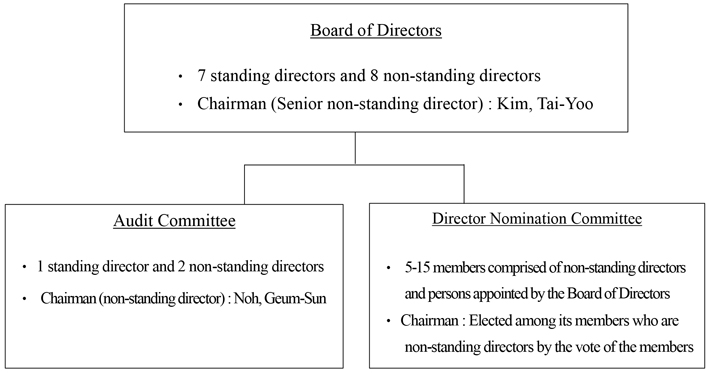Issued common shares are all registered common shares, and each share shall have one voting right. The voting rights of the shareholders who has shares in excess of three percent of the total number of issued shares are limited to three percent when appointing members of the audit committee, under the Korean Commercial Code.
KEPCO makes its company information publicly through its corporate website and electronic disclosure systems in order to provide the information in fair and equitable way in a timely manner.
KEPCO holds various IR meetings in relation to quarterly earnings releases in February, May, August and November. Moreover, following the relocation of its headquarters to Naju city, KEPCO holds IR meetings in Seoul every Friday with institutional investors. KEPCO announces the schedule for the earnings release through the corporate disclosure system of Korea Exchange as well as through public filings on the SEC website; KEPCO also posts its IR schedule on its corporate website.
IR Presentations are available on its corporate website, both in Korean and English. (http://home.kepco.co.kr/kepco/EN)
Since listing its American Depositary Receipts on the New York Stock Exchange in October 1994, KEPCO makes English disclosures available on the SEC website by way of the EDGAR system. The English filings KEPCO makes to the SEC is available by accessinghttp://www.sec.gov, clicking the “Company Filings” button and entering “Korea Electric Power Corporation” in the “Company Name” search field.
(2) Related Party Transactions and the Internal Control System
KEPCO has put in effect several internal regulations, including the Code of Conduct and Guidelines for Practice, for its executives and employees so as to prevent related party transactions and self-dealings that promote private interests among its executives and employees. Also, KEPCO has instituted an internal control system to identify and appropriately disclose related party transactions between KEPCO and its related parties.
Under the Code of Conduct, employees whose conduct harms the proper performance of his or her duties become subject to disciplinary actions. The Code of Conduct also prohibits employees from engaging in transactions based on information obtained in the course of employment.
In addition, under the Regulations Concerning the Public Disclosure, its executives and employees are prohibited from using any material nonpublic information related to its business in trading of securities or any other transaction.
